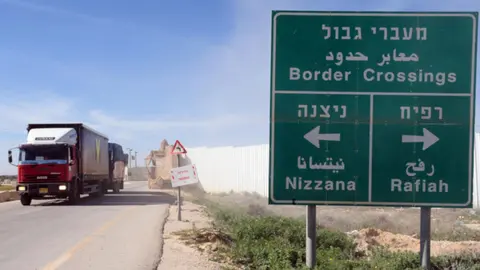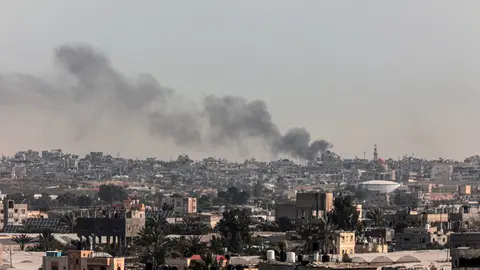Hamas walks out of Cairo talks, saying the ‘ball is in Israel's court’

In the midst of the Israeli military operation in Rafah, Hamas has decided to abandon negotiations on a temporary truce and hostage release agreement that were taking place in Cairo. Announcing the delegation's return to Qatar, the terrorist group said ‘the ball is now completely’ in Israel's hands, which it accused of ‘rejecting the proposal presented by the mediators’ and ‘raising objections on a number of central issues’.
Hamas claimed to have accepted a three-stage agreement for a ceasefire and a hostages-for-prisoners swap, although a senior Israeli official said this pact was not acceptable to Jerusalem because the terms it had previously approved had been modified. The terrorist group intended, during the first phase of the agreement, to release 33 Israeli hostages, some of them dead.
Israel has also reiterated on several occasions that it will not accept a proposal that involves ending the war and withdrawing troops from the Gaza Strip, as Jerusalem's objectives are the rescue of all hostages but also the complete elimination of Hamas in the Palestinian enclave.
In the midst of this situation, Israeli forces continue to operate in Rafah while Hamas continues to fire shells into southern Israel, specifically at the Kerem Shalom crossing, recently reopened by the Israeli authorities after the terrorist group launched an attack that killed four soldiers.
Kerem Shalom and Erez crossings are open, inspecting trucks of aid for the Gaza Strip.
— COGAT (@cogatonline) May 9, 2024
Our staff are here, ready and available to facilitate aid into Gaza.
All trucks sent to the crossings are immediately inspected and transferred to Gaza. pic.twitter.com/BtbRoJJQvv
On the other hand, the United States continues to pressure its ally in the Middle East not to expand its offensive in Rafah. In this regard, President Joe Biden has threatened to freeze some arms shipments if Israel launches a planned operation in the southern Gaza city.
In response, the Israel Defence Forces claimed to have sufficient ammunition for its operations. ‘The IDF has weapons for the missions it is planning, including missions in Rafah. We have what we need,’ IDF spokesman Rear Admiral Daniel Hagari confirmed during a press conference.
Also, as Hagari said, the US has so far provided security assistance to the State of Israel and the IDF ‘in a manner unprecedented during the war’. However, the White House this week confirmed a delay in the transfer of arms for fear that the IDF might use them in Rafah, as it has in other parts of Gaza.
Approx. 18 projectiles were fired from the Rafah area toward the areas of the Kerem Shalom Crossing and Re’im (southern Israel), following the sirens that sounded earlier today. This is the second time in the past few days that projectiles were fired toward the Kerem Shalom… pic.twitter.com/BCJ6KCXn6p
— Israel Defense Forces (@IDF) May 7, 2024
While several experts have noted that the Israeli army is likely to have the ammunition needed for an offensive in Rafah, it may prove difficult to confront Hezbollah if the conflict in the north escalates into all-out war and Washington continues to withhold ammunition, notes The Times of Israel.
Following Biden's comments, Prime Minister Benjamin Netanyahu said Israel would fight ‘with its fingernails’ if necessary. ‘During the War of Independence 76 years ago we were few against many,’ he said. ‘We had no weapons, there was an arms embargo on Israel, but with the strength of soul, courage and unity within us, we won,’ Netanyahu recalled.
We are on the eve of Independence Day. In the War of Independence 76 years ago, we were the few against the many. We did not have weapons. There was an arms embargo on Israel, but with great strength of spirit, heroism and unity among us – we were victorious. pic.twitter.com/Rv4BeMljn0
— Prime Minister of Israel (@IsraeliPM) May 9, 2024
IDF operations in Rafah have so far been limited to the eastern outskirts of the city and the border crossing with Egypt. Rafah is considered the last bastion of Hamas, although the city is also home to more than a million Gazans who have fled the fighting in other areas of the enclave. Many of the Israeli hostages are also believed to be in the area.
The US initially backed Israel's limited operation in Rafah to eliminate Hamas in the area, but warned that its position could change if the offensive was extended or if the delivery of humanitarian aid was hampered for a prolonged period.










